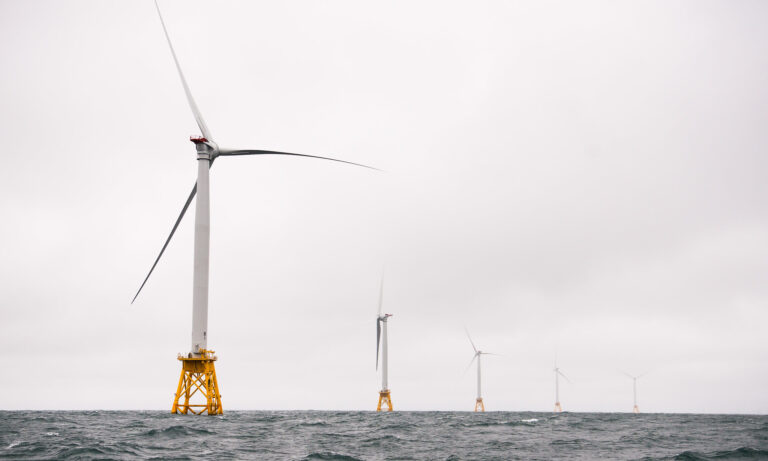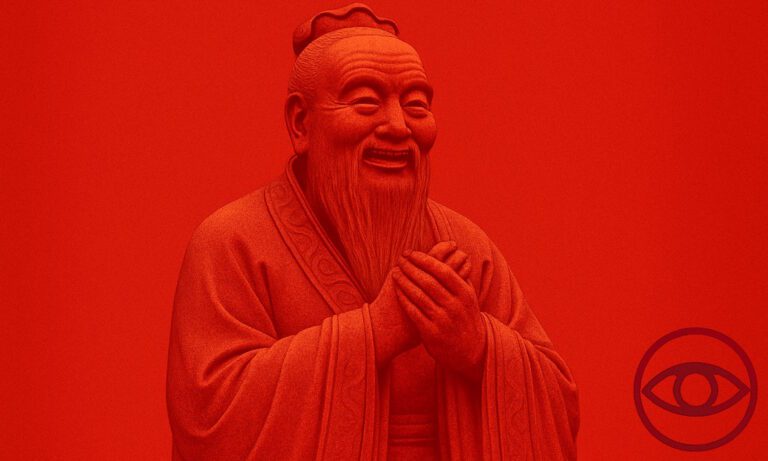The Czech Model: A New Era for Taiwan’s Diplomacy in Europe?

Following the signing of the Taipei-Prague sister city agreement and Mayor Hřib’s open support for Taiwan’s democracy, 2020 saw another diplomatic victory for Taiwan in the Czech Republic. After the visit of the 89-member Czech delegation to Taiwan, headed by the Senate President Vystrčil, several news outlets were quick to suggest a new era in Taiwan-Czech relations, some even extending it to Taiwan-EU relations. But is this really the case? Or will this be just another short-term victory without concrete results?
Economic Diplomacy
In the context of worsening bilateral relations between China and the Czech Republic, 2019 saw increasingly negative perception of China among the Czech public. According to the Pew Research Center’s Global Attitudes survey, Czechs (57%) were the second in Europe, only to Swedes (70%), to hold the most unfavorable views of China, a trend which was further exacerbated in 2020 when negative perceptions of China reached new global highs. However, a diplomatic opening for Taiwan amidst decreasing public support for China is not a new phenomenon.
Up until the late 1990s, the European Community’s trade with Taiwan exceeded trade with China, and Taiwan pursued economic diplomacy. This was significant in Central and Eastern Europe (CEE), where the purpose was to transform unofficial to official ties, conditioning Taipei’s economic aid upon the formalization of relations. This quid pro quo policy was particularly successful following the Tiananmen Square massacre when China faced increasing international isolation and countries in the region were fresh from repudiating their own communist regimes. However, the goal of formal consular or diplomatic ties was short-lived and accomplished only in Latvia (1992-1994) and Macedonia (1999-2001), both of which were terminated due to pressure from Beijing. Not even the support of the Czech President Havel was enough to formalize Taiwan-Czech relations. Havel’s statements in support of Taiwan’s democracy and UN membership bids, which were made against the background of the PRC-CEE rapprochement, were regularly disregarded by Czech cabinet members.
Taiwan has since abandoned the quid pro quo policy and it now focuses on the pursuit of public diplomacy, the overall objective of which is to preserve Taiwan’s international space. Public diplomacy is aimed at the country’s citizenry, which may be particularly effective in the context of increasing public disillusionment with China. Taiwan’s public diplomacy initiatives are organized by non-official or semi-official agents and focused on areas such as culture, education, healthcare and democracy, which do not directly compete with the aggressive economic statecraft China is developing under the 17+1 framework. Although the relations Taiwan is hoping to promote by means of public diplomacy are increasingly challenged by China’s own pursuit of such ties, especially in areas of education and culture, the last few years have eroded China’s standing. A growing number of controversies surrounding Confucius Institutes and China’s influence in western academia have served to denigrate public opinion on China in Europe and, tangentially, enhanced Taiwan’s own initiatives.
Diplomacy of Democracy
‘Diplomacy of democracy’ was first employed under President Chen Shui-bian who wanted to promote the image of Taiwan as a democratic country that respects human rights. This strand of public diplomacy has proved to be successful in facilitating official visits, as it effectively underpinned both the 2019 meeting between President Tsai Ing-wen and Prague Mayor Hřib as well as the most recent visit, during which Czech Senate President Vystrčil met senior government officials including President Tsai.
The strategy has also been successful more broadly in promoting the image of Taiwan as a country which shares the EU’s values. However, it has been less successful in getting governments on board. The European Parliament has displayed greater willingness to criticize China and support Taiwan’s meaningful participation in UN agencies, including observer status at the WHA, than the European Commission. The same applies to parliaments of individual EU countries, which have been consistently more pro-Taiwan than their own governments. The ‘diplomacy of democracy’ may have enhanced Taiwan’s image amongst citizens and their elected representatives in Europe, but in order to contest its increasing diplomatic isolation and exclusion from international organizations, Taiwan needs more allies at the executive level.
The Return to Economic Diplomacy?
In addition to agreements reached in areas such as scientific research, education and public health, one of the accomplishments of the Czech delegation visit was the signing of three memoranda of understanding between business representatives of the respective nations. This promotion of economic cooperation stands in stark contrast to the decreasing enthusiasm for economic relations with China, which are marked by increasing trade deficits on the side of the Czech Republic. Although the Czech Republic is one of the largest recipients of FDI from China in the CEE region, the levels can hardly compare to those seen in western Europe, with the UK, Germany, France, Finland and Scandinavia having received over 80% of the overall Chinese FDI flows to Europe in 2019, as opposed to less than 3% received by CEE countries.
As the Czech Republic is the fourth largest recipient of FDI from Taiwan in Europe and is significantly less reliant on investment from China than countries in western Europe, the current form of economic diplomacy may supplement Taiwan’s public diplomacy not only in the Czech Republic, but in the CEE region overall. Indeed, the ‘Czech model’ of combining public diplomacy initiatives with renewed economic initiatives, the latter of which allow for diversification of supply chains away from China, may be feasible in most CEE countries. This may be particularly true when it comes to the Baltic states which are even less reliant on Chinese trade and investment than the V4 countries. With the letter to the Lithuanian president Gitanas Nauseda, signed by over 200 political and intellectual elites, supporting Taiwan’s participation in international organizations, and the Minister of Foreign Affairs Linas Antanas Linkevičius calling for Taiwan’s observer status at the WHA, Lithuania may well be the first country to follow the ‘Czech model’, which could lead to the establishment of a Taiwanese representative office in the country. Amongst the Baltic states, Latvia is currently the only country which hosts a Taipei Mission.
This is not to suggest a return to Taiwan’s early economic diplomacy, the goal of which was to establish official relations, but rather a diversification of Taiwan’s partnerships around the globe. The ‘Czech model’ could produce new allies defending Taiwan’s international space as well as representation in new countries. In the long run, Taiwan’s increased visibility in the CEE EU member states could be used as a springboard to push for an EU-Taiwan bilateral investment agreement (BIA), which has been under consideration since 2015, and even influence the adjustment of EU’s China policy or the development of an independent Taiwan policy.
EU-Taiwan Relations: Public Health, Green Energy and the BIA
There is a noticeable discrepancy between the EU’s FDI flows to Taiwan and Taiwan’s FDI flows to the EU. The EU is Taiwan’s largest foreign investor, but the overall trade between Taiwan and the bloc remains relatively small. Still, as bilateral trade between Taiwan and the EU is largely complementary, both sides are expected to profit from a successfully negotiated BIA. The 2020 EU Investment Forum, the first of its kind, organized by the European Economic and Trade Office in Taiwan, seems to be a step in the right direction. President Tsai positioned Taiwan to become one of the EU’s top partners in the fields of biotechnology, ICT and public health, all fields that Taiwan excels in, and the EU representative in Taiwan, Filip Grzegorzewski, echoed the EU’s intention to rethink its global supply chains. This position is reinforced by the rising disillusionment with China amidst the COVID-19 pandemic.
COVID-19 also created new opportunities for Taiwan. The ‘COVID-19 diplomacy’ enhanced Taiwan’s international standing, with media outlets all over the world praising Taiwan for its quick and effective control measures. Public health diplomacy has a particular potential for success, as it displays the effectiveness of Taiwan’s healthcare model to an international community in need. Taiwan has cutting-edge expertise in smart healthcare, with the government committed to further develop the use of AI in healthcare. Green energy is also a nascent industry in Taiwan, with Taiwan opening its first commercial offshore wind farm in 2019 and the government committed to generate 20% of its electricity from renewable sources by 2025. The EU’s expertise in green energy and Taiwan’s expertise in healthcare can complement each other, providing fertile ground for Taiwan-EU cooperation.
The potential of Taiwan’s public and economic diplomacy to transform EU-Taiwan relations in the long run, especially in light of rising disillusionment with China, should not be dismissed. Even if the new economic diplomacy ends up focusing on a number of smaller CEE countries, these can support Taiwan’s interests within the EU. Taiwan’s public diplomacy can also succeed in eliciting support for Taiwan’s international space, as seen in the case of the ‘diplomacy of democracy’ and ‘COVID-19 diplomacy’. Europe may therefore emerge as one of the new battlegrounds in Taiwan’s intensifying struggle against international isolation. As the island nation faces growing military threats from across the Taiwan Strait, finding new allies is becoming ever more important.
Written by
Dominika Remžová
DominikaRemzovaDominika Remžová is a China Analyst at AMO, specializing in Chinese economy and industrial policy, supply chains, critical raw materials, electric vehicles and, more generally, Chinese foreign policy. In the past, she contributed to Taiwan Insight and The Diplomat, among others. Dominika is pursuing her PhD in Political Science and International Relations at the University of Nottingham. She earned her Master's degree in Taiwan Studies from the School of Oriental and African Studies (SOAS) in London and her Bachelor's degree in Chinese Studies from the University of Manchester.


